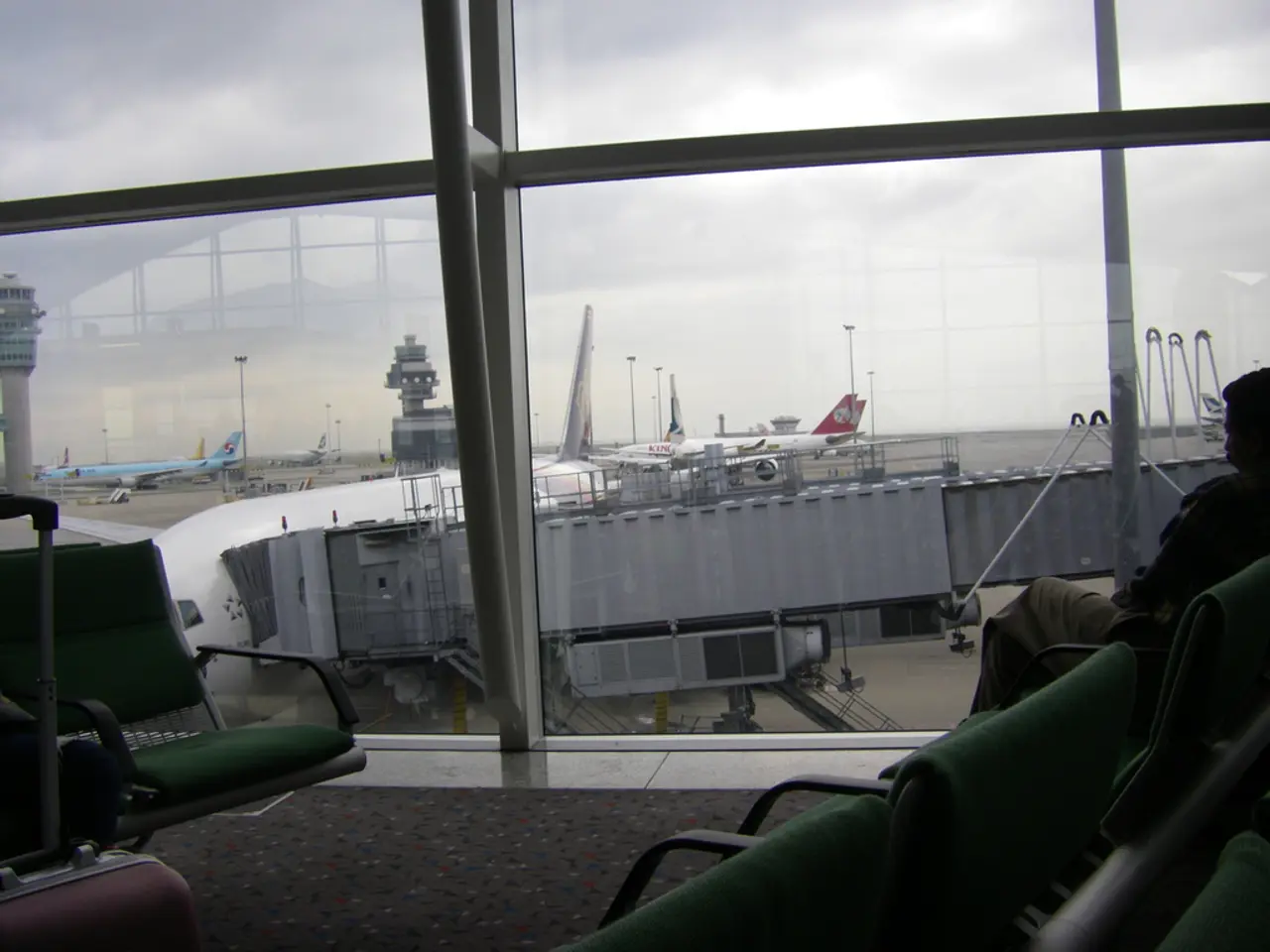Persistent Battle over Passenger Luggage Stowed in Aircraft Cabin
The European Union (EU) is moving towards a significant change in carry-on luggage regulations, aiming to create a fairer, more transparent travel experience for passengers. Currently, airlines in the EU have varying policies regarding carry-on bag fees, with ultra-low-cost carriers charging additional fees for larger bags, while legacy carriers typically do not.
The EU is working on legislation that would prohibit airlines from charging passengers for carrying on hand luggage on all flights within the EU as well as flights between the EU and the UK. This ban on carry-on fees would apply to one personal item, such as a handbag or small backpack, and one carry-on bag weighing up to 7 kg, with a maximum total size of 100 cm (sum of length + width + height). The personal item would have a recommended size limit of approximately 40 x 30 x 15 cm.
The new proposal aims to bring clarity, consistency, and transparency to the current EU law, which has been vague and difficult to enforce consistently. It will prevent unexpected fees at airports and protect passengers from unfair charges. The legislation would also grant free seats for carers of passengers with reduced mobility and allow children under 12 to sit free with an accompanying passenger. Airlines would be required to disclose the full cost of flights upfront, avoiding hidden fees.
The airline association A4E opposes additional rules on cabin baggage, arguing that passengers who choose the cheapest tariff without a cabin suitcase should not be forced to pay for something they don't need. However, the EU's lack of "appropriate guidelines" for size and weight has been a concern, as highlighted by a 2014 European Court of Justice ruling that no additional charge can be levied for carry-on luggage.
Passengers should always check their airline's regulations before departure to avoid potential charges and fines at the airport. The proposals have passed the European Parliament's transport committee but still require final approval before becoming law. If approved, the new rules are set to create a standardised and fair policy across all EU flights and those between the EU and the UK.
The impact of these changes is significant, particularly for passengers flying on budget airlines. Budget airlines may lose revenue from carry-on fees but might adjust ticket prices accordingly. The new rules are intended to create a fairer, more transparent travel experience for everyone in the EU.
As the travel season approaches, the debate about carry-on luggage in passenger aircraft is intensifying. Traveling with only carry-on luggage can save passengers checked baggage fees and reduce the risk of loss, especially during summer high season when checked luggage is often lost or delayed. However, if passengers bring too many belongings onto the plane, the space in the overhead compartments can quickly become scarce, leading to disputes and stress.
The EU has left carry-on luggage rules to airlines themselves, with inconsistent implementations even of International Air Transport Association (IATA) recommendations. The German industry association BDL argues that uniform baggage sizes would not do justice to the different types of aircraft. Despite these concerns, the EU is pushing for more generous rules in the cabins, with MEPs pushing for passengers to be allowed to take two small pieces of luggage on board free of charge in the future.
Sources: [1] BBC News Europe, 2025 [2] The Guardian, 2025 [3] The Telegraph, 2025 [4] European Parliament, 2025 [5] Corriere della Sera, 2025
The European Union's proposed legislation seeks to standardize carry-on luggage policies across all flights within the EU and between the EU and UK, aiming to create a fairer and more transparent travel experience. Under this policy, passengers would be able to carry one personal item and one carry-on bag weighing up to 7 kg without additional fees, providing a consumer-friendly lifestyle during travel.




